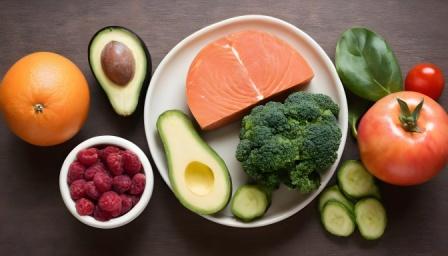Pregnancy marks an extraordinary period in a woman's life, a time of transformation, anticipation, and immense responsibility. As the maternal body nurtures a growing life within, the need for essential nutrients and minerals intensifies, fueling both the mother's well-being and the baby's development.
A balanced and nourishing diet during pregnancy becomes paramount, providing the building blocks for the baby's growth and development, while supporting the mother's increased energy demands and physiological changes. Minerals and nutrients play a crucial role in this intricate process, each contributing to specific functions and ensuring a healthy pregnancy.
Folic Acid: A Building Block for Life
Folic acid, a B vitamin, stands as a cornerstone of prenatal nutrition. Its importance lies in its role in neural tube defect (NTD) prevention. NTDs are serious birth defects affecting the brain and spinal cord, and adequate folic acid intake can significantly reduce their risk.
The recommended daily intake of folic acid for pregnant women is 400 micrograms. Early supplementation, ideally starting before conception and continuing throughout pregnancy, is essential to protect the developing baby.
Iron: Oxygenating the Journey
Iron, a mineral indispensable for carrying oxygen throughout the body, becomes particularly crucial during pregnancy. The maternal blood volume increases by up to 50% to support the growing baby, and iron ensures that oxygen reaches both mother and child effectively.
The recommended daily intake of iron for pregnant women is 27 milligrams. Iron-rich foods, such as lean meats, poultry, fish, beans, and leafy green vegetables, should be incorporated into the diet. Iron supplements may also be recommended by healthcare providers.
Calcium: Building Strong Bones and Teeth
Calcium, the most abundant mineral in the body, plays a pivotal role in the baby's bone and tooth development. During pregnancy, the baby draws calcium from the mother's bones, emphasizing the importance of adequate calcium intake.
The recommended daily intake of calcium for pregnant women is 1,000 milligrams. Dairy products, fortified foods, and leafy green vegetables are excellent sources of calcium.
Vitamin D: Enhancing Calcium Absorption
Vitamin D, working in conjunction with calcium, ensures the efficient absorption and utilization of calcium for bone and tooth development. It also supports the baby's immune system and neuromuscular function.
Sun exposure is the primary source of vitamin D, but additional supplementation may be recommended, especially if sun exposure is limited. The recommended daily intake of vitamin D for pregnant women is 600 international units (IU).
DHA: Nurturing Brain Development
Docosahexaenoic acid (DHA), an omega-3 fatty acid, plays a crucial role in the baby's brain and eye development. It supports the formation of neural connections and contributes to cognitive function and vision.
The recommended daily intake of DHA for pregnant women is 200 milligrams. Fatty fish, such as salmon, sardines, and mackerel, are excellent sources of DHA. Supplementation may also be recommended.
A Collaborative Effort
Ensuring adequate intake of minerals and nutrients during pregnancy requires a collaborative effort between the mother and healthcare providers. Prenatal checkups provide opportunities to assess nutritional status, address any deficiencies, and tailor recommendations to individual needs.
A balanced and nourishing diet, complemented by appropriate supplements when necessary, lays the foundation for a healthy pregnancy and a thriving baby.
By prioritizing nutrient intake throughout this extraordinary journey, mothers can nurture not only the baby's growth but also their own well-being, ensuring a safe and fulfilling pregnancy experience.







